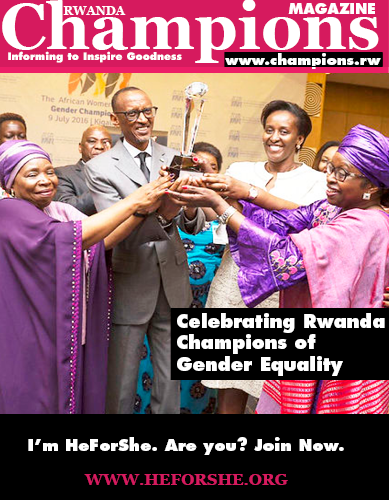UN Women Rwanda launches $6.3 million plan to boost women’s empowerment
UN Women Rwanda has launched a new four-year strategic plan that will require about $6.3 million to expand programs (…)

The maternal mortality ratio in Rwanda shows a great step made as the number continues to decline from 1,007 deaths in 2000 to 259 presently, the World Bank indicates.
Rwanda’s effort to alleviate the number of women who die during pregnancy and childbirth has ranked it the best in the region.
“Maternal mortality in Rwanda is lower than its regional average,” reads a World Bank report.
The reduction is a result of strategies put in place by the Rwandan government aimed at facilitating and enabling all mothers and children to access health facilities. Investment injected in emergency obstetrics, neonatal care services, and maternal health care are some of other factors contributing to the reduction of mothers who die during pregnancy and birth.
Professional personnel in midwifery in hospitals and health centers were increased to reduce long waiting times for mothers in maternal wards. Births attended by skilled health professionals also increased from 85 to 89 percent in 2020–2021.
Key infrastructure such as maternity wards have been built in rural communities, and several ambulances have been procured while roads were constructed in hard-to-reach areas to avoid pregnancy-related deaths.
The health ministry adopted the new World Health Organization’s antenatal guidelines to provide a positive pregnancy experience.
Better achievements were also observed in the percentage of antenatal care coverage with four standard visits, which reduced from 47 to 45 percent.
Data from the Ministry of Health shows a great milestone for the last two decades; a drop in the new-born mortality rate from 40 to 17 per 1000 births.
The achieved milestone correlates with the planned budget allocated to the health sector annually.
For example, the 2023–24 budget has prioritized the health sector and reserved about rwf452.9 billion for the sector.
“There have been 12 health centers built across the country, adding to the existing over 400 and 1,252 health posts,” Prime Minister Dr. Eduard Ngirente said during the 2024 National Dialogue concluded last week.
Eugenia Mukamana, a 35-year-old mother of two children is a resident of Kicukiro, near Masaka Hospital. She says that it is no longer a problem to give birth, regardless of where a mother could be located.
“Now that I live near the hospital, it doesn’t even require means of transport. I am sure that even women who live in the countryside are no longer struggling while seeking maternity services,” Mukamana told Rwanda Champions Magazine.
From several campaigns disseminated through radios, health centers, hospitals, and community health workers, most women now increasingly use health services during pregnancy.
“Statistics show that the number of women who give birth at hospitals has increased to 93 percent,” Prime Minister Dr. Ngirente revealed.
The health minister Dr. Sabin Nsanzimana also revealed that for the first time, a specialized hospital to treat women and children with 200 rooms has been built in Muhanga district.
UN Women Rwanda has launched a new four-year strategic plan that will require about $6.3 million to expand programs (…)
UN Women Rwanda has launched a new four-year strategic plan that will require about $6.3 million to expand programs (…)
African women leaders are calling for greater solidarity and collaboration to help more women attain leadership (…)
Women for Women International (WfWI) has appointed Nigerian development expert Thelma Ekiyor as its new global chief (…)

